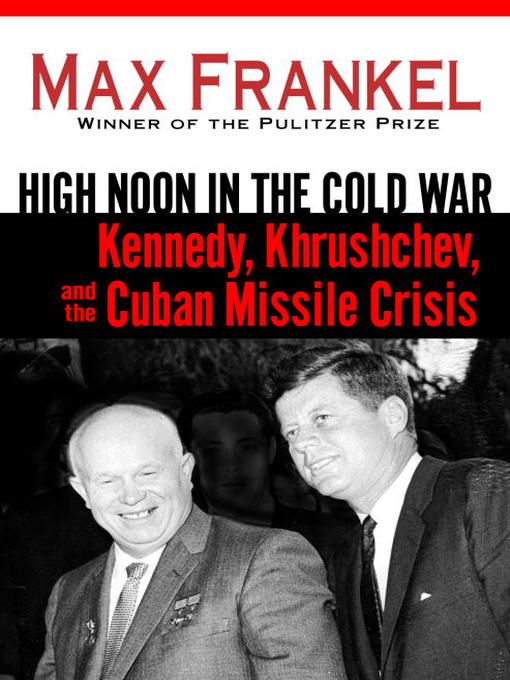
High Noon in the Cold War
Kennedy, Khrushchev, and the Cuban Missile Crisis
کتاب های مرتبط
- اطلاعات
- نقد و بررسی
- دیدگاه کاربران
نقد و بررسی

August 2, 2004
"It all began with a Russian ploy worthy of the horse at Troy." So begins Frankel's account of the most dangerous moment of the Cold War. In October 1962, two men, Khrushchev and John F. Kennedy, stood locked in psychological combat, a hairbreadth from Armageddon. A former executive editor of the New York Times
and Pulitzer winner who covered Khrushchev's Moscow, Kennedy's Washington and Castro's Havana, Frankel blends his own notes with the most recent scholarship on the crisis. The result is a great story, told from different vantage points and filled with drama. While he concludes that the U.S. and the U.S.S.R. were never really on the brink of war, Frankel constantly reminds us of how high the stakes were; the balance of geopolitical power with Cuba, Berlin, Turkey and the solidarity of the NATO alliance were all at risk. Kennedy is presented as the unquestionable hero in this confrontation, a man full of imagination, capable of great cunning and equally adroit at outmaneuvering both his Russian and Republican foes. As his adviser McGeorge Bundy once observed, "orests have been felled to print the reflections and conclusions of participants, observers and scholars" of the crisis. Though breaking no new ground, Frankel offers sobering lessons in leadership for the war on terrorism. Agent, Jane Gelfman.

Starred review from October 1, 2004
Much has been written about the Cuban Missile Crisis of October 1962, when the United States and Soviet Union clashed over construction of Soviet nuclear missile bases in Cuba. Frankel, former New York Times reporter, Washington, DC, bureau chief, editorial page editor, and executive editor (1986-94), employs his considerable skill as a writer and his experience as a journalist who covered the crisis to weave a fascinating and informative reexamination of the famous "13 days." Arguing that "for the most part, we remember it wrong," Frankel concludes that rather than dangerous brinksmanship, "it is clear that Khrushchev and Kennedy were effectively deterred by their fear of war].In the end, both were ready to betray important allies, resist the counsel of chafing military commanders, and endure political humiliation to find a way out of the crisis." Frankel concludes that "two responsible and highly intelligent men were firmly in charge of both governments and they were determined to avoid war, certainly a nuclear war." A fine book, well written and engaging, this is an important addition to the literature of the Cold War and the Cuban Missile Crisis.--Michael A. Genovese, Loyola Marymount Univ., Los Angeles
Copyright 2004 Library Journal, LLC Used with permission.

























دیدگاه کاربران